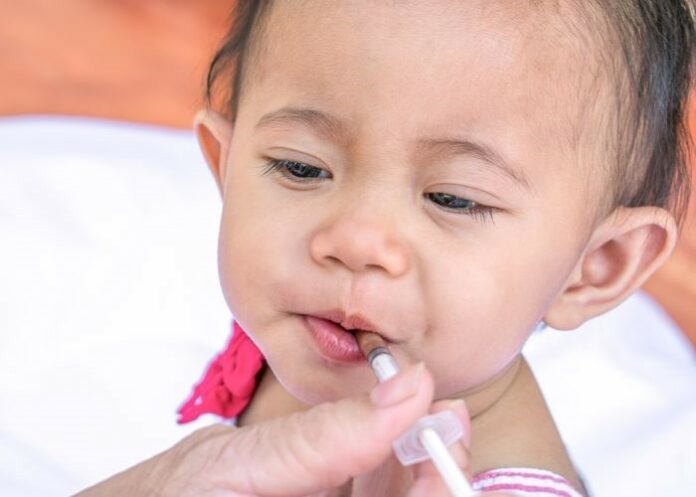Antibiotics, the most commonly used drugs in children, can lead to a host of adverse outcomes, including autism spectrum disorders and asthma, according to a recent meta-analysis, which concluded that “sound antibiotic stewardship” can help youngsters avoid these long-term conditions.
The researchers identified 160 observational studies investigating 21 different outcomes. Antibiotic exposure was associated with an increased risk of conditions, including atopic dermatitis, food allergies, allergic symptoms, allergic rhinoconjunctivitis, wheezing asthma, weight gain or obesity, juvenile idiopathic arthritis, psoriasis, autism spectrum disorders and neurodevelopment disorders.
It was not linked to an altered risk of allergic sensitisation, infantile colic, abdominal pain, inflammatory bowel disease, celiac disease, type 1 diabetes, fluorosis, or attention deficit hyperactivity disorder.
Co-author Dr Petra Zimmermann, PhD, deputy head of paediatrics and a health researcher with the Faculty of Science and Medicine at the University of Fribourg in Switzerland, told MedPage Today that antibiotics are among the most commonly used drugs in children.
“In many settings, more than two-thirds of children receive antibiotics before they are two-years-old,” she said, “and, on average, more than half of all children receive at least one antibiotic each year, with the highest rate in the second year of life.
“We have observed dramatic rises in the prevalence of immune-mediated diseases, including allergic diseases, and it is likely that the overuse of antibiotics contributes to this.
“We wanted to summarise studies that have investigated the association between antibiotic exposure and adverse long-term health outcomes in children.”
The review was published in the Journal of Infection.
“The highest increase in risk was observed for asthma,” she said. “For these conditions, the odds almost doubled in children who had been exposed to antibiotics in the first years of their lives.”
Zimmermann said they were surprised to find that so many studies have investigated this. “And yet this issue has caught little attention and is not often considered in decision-making in clinical practice by doctors.”
The key messages for clinicians regarding children and antibiotics exposure, she added, was that although a causal association cannot be determined from these studies, “results support meticulous application of sound antibiotic stewardship to avoid potential adverse long-term health outcomes in children”.
On how research can help the medical profession to better understand or improve antibiotic stewardship, she added: “It is well known that antibiotics cause profound changes in the microbiota. The disruption of intestinal microbiota in the early-life period, during which the microbiota and the immune response develop concurrently, is possibly associated with the development of immune- and non-immune-mediated diseases.”
Clinical implications
• Antibiotic exposure in early life is associated with higher risk of several adverse long-term conditions.
• Highest risk increase existed for asthma; exposure was also associated with increased risk for dermatologic conditions, including psoriasis and juvenile idiopathic arthritis.
• “Meticulous application” of sound antibiotic stewardship can help avoid potential adverse effects in children.
Study details
Antibiotic exposure and adverse long-term health outcomes in children: A systematic review and meta-analysis
Quynh A Duong, Laure F Pittet, Nigel Curtis, Petra Zimmermann.
Published in Journal of Infection on 9 January 2022.
Summary
Background
Antibiotics are among the most commonly used drugs in children. In addition to inducing antibiotic resistance, antibiotic exposure has been associated with adverse long-term health outcomes.
Methods
A systematic search using PRISMA guidelines to identify original studies reporting associations between antibiotic exposure and adverse long-term health outcomes in children. Overall pooled estimates of the odds ratios (ORs) were obtained using random-effects models.
Results
We identified 160 observational studies investigating 21 outcomes in 22,103,129 children. Antibiotic exposure was associated with an increased risk of atopic dermatitis (OR 1.40, 95% confidence interval (CI) 1.30–1.52, p < 0.01), allergic symptoms (OR 1.93, 95%CI 1.66–2.26, p < 0.01), food allergies (OR 1.35, 95%CI 1.20–1.52, p < 0.01), allergic rhinoconjunctivitis (OR 1.66, 95%CI 1.51–1.83, p < 0.01), wheezing (OR 1.81, 95%CI 1.65–1.97, p < 0.01), asthma (OR 1.96, 95%CI 1.76–2.17, p < 0.01), increased weight gain or overweight (OR 1.18, 95%CI 1.11–1.26, p < 0.01), obesity (OR 1.21, 95%CI 1.05–1.40, p < 0.01), juvenile idiopathic arthritis (OR 1.74, 95%CI 1.21–2.52, p < 0.01), psoriasis (OR 1.75, 95%CI 1.44–2.11, p < 0.01), autism spectrum disorders (OR 1.19, 95%CI 1.04–1.36, p = 0.01) and neurodevelopment disorders (OR 1.29, 95%CI 1.09–1.53, p < 0.01). Dose-response effects and stronger effects with broad-spectrum antibiotic were often reported. Antibiotic exposure was not associated with an altered risk of allergic sensitisation, infantile colic, abdominal pain, inflammatory bowel disease, celiac disease, type 1 diabetes, fluorosis, and attention deficit hyperactivity disorder.
Conclusion
Although a causal association cannot be determined from these studies, the results support the meticulous application of sound antibiotic stewardship to avoid potential adverse long-term health outcomes.
Medpage Today article – Antibiotic Exposure and Adverse Outcomes in Children (Open access)
See more from MedicalBrief archives:
Antibiotic use in newborns linked to reduced growth in boys in first 6 years
Antibiotic resistance bigger than Aids epidemic – WHO
Short-course of antibiotics suffices for children with pneumonia
Pet exposure may reduce allergies and obesity in children

